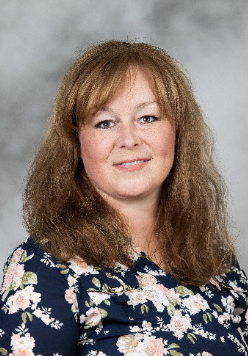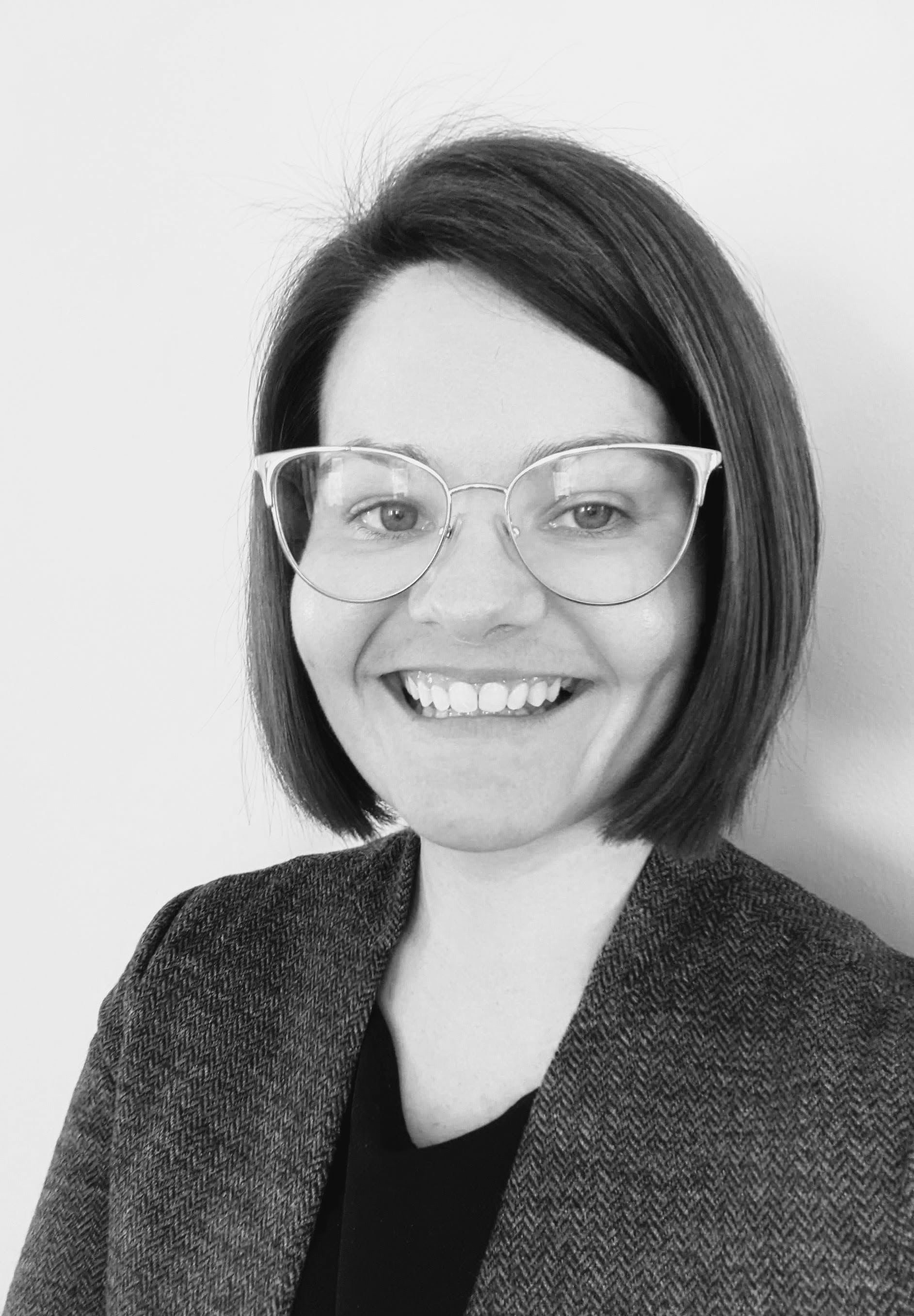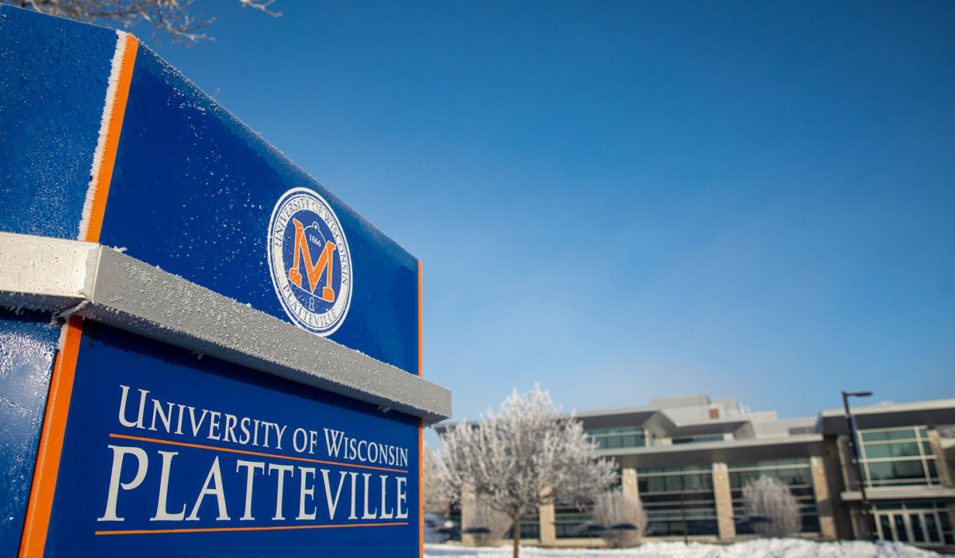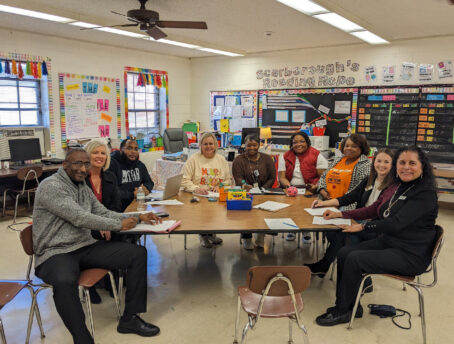Rural Schools Collaborative was proud to support the launch of the University of Wisconsin-Platteville's Proud Rural Teacher Podcast though the Catalyst Grant. Recently, our Executive Director, Taylor McCabe-Juhnke, sat down with Senior Lecturer, Jessica Brogley of the School of Education at the University of Wisconsin Platteville, to share RSC's vision for the new year, celebrating the NFARE conference, and sharing some new teacher resources.
Listen to Taylor & Jessica's Conversation!
Written Version:
[Jessica Brogley] Welcome to the Proud Rural Teacher Podcast, hosted by the School of Education at the University of Wisconsin-Platteville.

The Proud Rural Teacher Podcast focuses on sharing inspiring stories of education in rural areas. With each episode, we'll provide context, resources, and contact information for you to take these great ideas back to your communities. I'm your host, Jessica Brogley.
Rural teachers work hard as classroom instructors and community leaders, and here at The Rural Schools Collaborative, we want to celebrate their stories. That's why we partner with the National Rural Education Association to bring you the I Am a Rural Teacher Campaign. Read and listen to teacher stories, share your own, or visit our Teach Rural Job Board to view openings across the country. Visit; I am a rural teacher.org. to learn more.
I'm a rural teacher. I'm a rural teacher. I'm a rural teacher.
[Jessica Brogley] In today's episode, you're meeting at Taylor McCabe-Juhnke, the Executive Director of the Rural Schools Collaborative. It's important that our rural schools know who their advocates are and what resources they provide. The Rural Schools Collaborative, also known as RSC, is certainly one of them. Across the country, there are 11 RSC Regional Hubs that align with their goals. And the School of Education just happens to be one of those 11. We are the Driftless Hub supporting rural education in the Driftless region of Wisconsin, Iowa, Minnesota, and Illinois. In today's interview, Taylor will provide you with an understanding of what RSC is and why their advocacy matters. You'll leave this episode with yet another resource.

[Taylor McCabe-Juhnke] Thanks so much for having me, Jessica. My name is Taylor McCabe-Juhnke, and I'm the Executive Director of Rural Schools Collaborative. I live in Galesburg, Illinois, but our work happens nationally and we're so excited to be proud partners with the University of Wisconsin-Platteville and all the great work that you all are doing there. A little bit about Rural Schools Collaborative. We are a national nonprofit that is really focused on creating sustainable rural communities, and we do that through focusing on place on teachers and on philanthropy. So I'm sure we'll get into some of those a little bit later today. A big piece of the work that we do is also through a network. We have what we call a regional hub network, and that has different rural advocates all across the United States; whether it's rural, serving higher ed institutions like the University of Wisconsin-Platteville, or whether it's community foundations that are supporting real education or whether it's nonprofits or other organizations that are doing this work locally.
And so our team is small, but, you know, the power of a network allows us to kind of zip all of those folks up, bring them them together, and share strategies, ideas, and stories that really help us kind of move the needle on some of the national challenges facing real education as a collaborative and, and more at the systemic level.
We've got a lot of fun projects that we work on, but that's a little bit of, of how we're structured and really focusing on the role of schools in rural communities as sort of, you know, if you're going to invest in, in rural communities, start by investing in the school, and that really kind of ripples all the way out. That's a little bit about our work, and I'm happy to be here with you.
[Jessica Brogley] You mentioned the ripple, and I felt that when we we're in Green Bay for NFARE, and that was my first time attending and it was an energizing experience that that left me feeling very hopeful and part of many solutions for rural schools. What were your takeaways or parting thoughts after you left NFARE?
[Taylor McCabe-Juhnke] Allen Pratt at the National Rural Education Association has been such a great partner for us, and sometimes we like to say that, uh, they're sort of the policy wing of the work that we do here at Roll Schools Collaborative. And so it's been a great. A great conference for us to be more involved in and for our partners to attend. Walking away from, you know, the, the conference in Green Bay, I think that I really walked away with that sense of collaboration. Sort of felt like you're coming home to a family reunion because there's a lot of folks in different industries that are all kind of, um, focused on the same things that you are and maybe approaching problems from different ways. And I love that about that conference. I feel that way every year. It was also a record setting attendance number for the conference. And so for me, it's just exciting that instead of folks kind of reinventing the wheel or having other conferences, that this has really become a way to bring a lot of these different stakeholders together, whether that's teachers in the classroom, you know, rural superintendents, higher ed folks, researchers, nonprofits, philanthropic folks, and just an incredible opportunity for all of those folks to share the same space while talking about rural education. I think my biggest takeaway too, just from a personal perspective is hearing a lot more interest in sort of the, diversity, equity, inclusion and belonging at this conference. I think that that's going to be a continued conversation for folks in this space to have. And it was exciting for me to see that both in the sessions that were happening, but also in some of the keynote panels and presentations.
I'm really looking forward to digging into that. I know this is something that I've talked about too with some of our partners at UW Platteville; is that we often have this narrative around rural that what we do so well is community and bringing folks together, and we feel like a family, but sometimes we forget about, you know, who is that excluding, you know, who, who is feeling welcome in these circles? You know, there's a, a difference between being inclusive, giving everyone equal opportunities to be involved, versus that belonging piece of saying, I feel a part of this, you know, I feel welcome here. I want to be here. And I think that with the changing demographics of many, many real places, focusing on that belonging piece and having that conversation - both locally and nationally is going to be really important. And that's work that we are committed to, our partners are committed to. And it was really exciting to see those conversations sparking at the conference.
[Jessica Brogley] So this certainly will launch into some of RSC's objectives for the year, I'm sure. What are your (RSC's) projects for the upcoming year?
[Taylor McCabe-Juhnke] We're really excited to continue to do some of our, I am a real teacher storytelling. It's been interesting to see that a lot of the issues that we and our partners have been working on for many years are now starting to garner some national attention, probably long overdue. But you know, a recent report went out from the folks that said, we all really need to focus on elevating the role of teachers and celebrating that profession. And for us, that's really deepening our continued storytelling work with our partners through our, I'm a Rural Teacher campaign, which essentially allows a space for teachers to tell their own story from rural places to celebrate their communities, to talk about the importance of that role. And so I think that the timing is right to continue to have this platform for rural teachers to express what's going on, and also really just to celebrate them. They're often kind of the unsung heroes in their places. So that is something that remains unchanged and we're excited to kind of recommit to, and that is a joint project as well with the National Rural Education Association. I think that we're also really as our network continues to grow, as I talked about earlier, sort of uniquely positioned to start to think about some of these things - not just at the local and grassroots level, but also at the systemic level. And so this is the first year you know, COVID obviously threw a wrench into a lot of travel plans, but this is the first year that we're bringing all of our regional hub partners together. So those higher ed folks, you know, those nonprofit folks, the community foundations to all say Hey, what are we learning in our respective places, you know, and how can we tackle some of these challenges together? So topics that I imagine will come up, um, of course is the real teacher shortage. How do we get folks interested in teaching? How do we support them once they're in the field? But also,one step further now really focusing on, you know, how are we thinking about diversifying that teacher pathway so that our teachers are really reflective of the students they're teaching? And, this will be a, a great one for us to kind of bring that collective knowledge together around what's working, what's not working, what could we try, and how do we do this together. So, that's a big piece that I'm excited to talk about in that meeting. I also think that this has been a great opportunity for the Rural Schools Collaborative to get a little bit more involved in the national philanthropy side. So a lot of the work that we've been doing has really focused on that local philanthropy, which will continue to be important, you know, so how are your local community members giving back to their schools? How are your local community foundations supporting your future teachers or your current teachers? But now that our network has grown, we've really got a great opportunity to say, Hey, national funders, you know, rural is important, education is important. And I think that the Covid pandemic, as well as, you know, some of the political pieces that we don't need to get into, have really got a lot of folks sitting up and saying, gosh, we need to focus on education and we need to focus on rural. And to have that conversation happening at the national level means that there's a great opportunity for folks in philanthropy at the national level to say, great, how do we invest in, you know, a network like Rural Schools Collaborative, where we can help funnel those dollars to our different partners? So that's kind of pie in the sky, but if I had to say an aspirational goal, it would really be to, to make sure that those new resources and dollars that are coming up at the national level are also getting kind of matched with folks who have been doing this authentic work rooted in their place for quite some time. And, and that they have some strategies and ideas around how it should work in their place versus somewhere else. And so that's my aspirational goal for 2023 and beyond.
[Jessica Brogley] Rural Schools Collaborative is very responsive to what our rural schools need. I certainly appreciate that work. Let's drill down to some resources - school specific. What resources do you want rural schools to know about for this new year?
[Taylor McCabe-Juhnke] Yeah, I wanted to share that we had a great opportunity to launch a few new, elements of our I'm a Rural teacher project. So, the storytelling remains at the heart of that. But we were also able to this year launch what we call the Teach Rural Resiliency Guide. And that is a collection of questions and advice from, different rural teachers who are early on in their career that say: okay, it's your first year in the classroom? Here's what you should be focusing on. Here's what you might be worried about. Here are some ideas. And so that Resiliency Guide that we launched this year breaks out into three different parts. There's advice for teachers from teachers, there's advice to rural administrators from teachers, and then there's suggestions for rural community members and how they can support new teachers.
And so I think that that is going to be an exciting piece for us to continue to grow, but we'd also love to get the word out that this exists and get folks feedback on how we can make this guide more helpful. I love that that teacher voice that's at the heart of all that we do is really sort of the basis of that project. It's all about what do teachers want you to know, either teacher to teacher, teacher to administrator, or teacher to community. And that I think will be a great resource for folks who are new or veterans in the real teaching career. I'm also really excited too, we've got a, a teach Rural Job Board that we're working on launching with the National Rural Education Association. And the idea there is that we have been able to tell these great stories about why it's amazing to teach in rural places.
And we'd love to kind of have a job board that not just lists jobs, but really says, Hey, if you wanna get a job, uh, you know, in Platteville, here's what it would look like. Here's what's to be celebrated in Plattville and the Dripless area, and here's a story from a teacher that you know, has gone on this journey. And, really, use that not just as a job board, but as an aspirational way to get folks interested in the rural teaching career that's rooted in a place. You know, what can you expect from being a teacher in very far northern California that's different than, you know, the Black Belt of Alabama? And using that storytelling, alongside those job listings to get folks both interested in a place and also interested in the career. So again, that's a really, uh, aspirational tool that just launched.
We're hoping to get the word out about that. The last piece I would say is that there's a really exciting movement going on around how do we use data to help rural students achieve post-secondary success? And again, I think that this is something that's going to continue to be important as we're looking at learning loss after the COVID Pandemic, and how do we make sure that we're supporting our rural students to achieve graduation and also achieve success after graduation, whatever that looks like. Rural Schools Collaborative has recently joined an initiative called The Grad Partnership for Student Success. It's just exciting to think about how small and rural schools might use a data framework to get some more information about how to better help our students. And so that's a new project for us, but I think that thinking a lot about our students who have gone through, you know, two or three years of really challenging times it's a good time for us to ask ourselves these questions about how are we supporting rural students to graduate and continue to find success. So those are a few little tidbitsof resources that we're working on that I'm excited to share with folks this year.
[Jessica Brogley] Let's go back, I have a another question about the Rural Job Board. If a district wanted to get involved with that, how would they go about doing that? Say they want to share what's unique about their community and why people should want to work there. How do we funnel in more schools to the Rural Job board?
[Taylor McCabe-Juhnke] Yeah, that's a great question. So, the teacher role job board is free - It will always be free. And we hope that it's just another way for Rural Schools collaborative to do some of that marketing and making noise about what's great about teaching that sometimes rural districts might not always have the time or ability to do. So it's easy for folks to go onto the I Am a Real teacher.org website and click through onto the job board, and then you can submit a position there. And there's also an opportunity for them. You know, there's actually a box, it's optional, but we're trying to encourage folks to fill it out that says, what's unique about your place? What do people love about living here? And so the more that people fill out the additional information and that context, I think the more that it really sets apart your job and your district from other folks. We've also, uh, got a few video submissions too, if folks email us more information that says, Hey, can I do a couple minute video just talking about what we love about our school? That has been so fun for us to kind of share those out on social media on our newsletter platforms. And I think that that's something that Rural Schools Collaborative sees as a service sort of, that we can help with. And we've got a lot of smart young folks who love technology and, and love that multimedia experience. And so, there's a couple different ways to do that. But the easiest is just to go to the, I'm a rural teacher.org website and, and post a job, and feel free to let us know as, as you all have questions or suggestions for improving that. It's a tool we're really excited about.
[Jessica Brogley] If someone wanted to get in contact with RSC or understand or learn more about what you provide, where would they go?
[Taylor McCabe-Juhnke] You can find us at ruralschoolscollaborative.org. If you're looking for some of those teacher facing resources and storytelling that I mentioned, you can also find us at, I am a rural teacher.org, and if folks ever have any questions, we have kind of a general inbox, which is info@ruralschoolscollaborative.org. And that's a great way to get in contact with us, get you connected with our partners or some of their work and learn more. I'd really encourage folks to explore our regional hub partners because so much of the work that they're doing rooted in their place drives the strategy that we are doing at the national level.
[Jessica Brogley] Great idea. UW Platteville is the Driftless Hub.
[Taylor McCabe-Juhnke] Indeed. Three cheers for UW Platteville!
[Jessica Brogley] <laugh>, thanks for your time today, Taylor. I appreciate it. We certainly value the, the connection with RSC and the work that you do across the nation. Thank you.
[Taylor McCabe-Juhnke] Thank you!
[Jessica Brogley] The Proud Rule Teacher Podcast is hosted by the School of Education at the University of Wisconsin Platteville. The theme music was created by agriculture and Technology education, major Calvin Caldron. Be sure to subscribe to the PRT podcast and visit us online at proud rural teacher podcast.com. And if you have an episode suggestion or feedback, please leave us a SpeakPipe message on our website. We want to hear your stories. Thanks for listening.




